How Chess Enhances Critical Thinking Skills in the Classroom
In the ever-evolving landscape of education, finding effective methods to enhance critical thinking skills is a top priority for educators. One surprisingly powerful tool in this endeavor is chess. Known for its strategic depth and intellectual challenge, chess is more than just a game; it’s a robust educational resource that significantly enhances critical thinking skills. By engaging with chess, students are not only improving their strategic and problem-solving abilities but also learning to make thoughtful, informed decisions.
Chess enhances critical thinking skills by requiring players to plan several moves ahead, analyze complex scenarios, and anticipate their opponent’s strategies. These cognitive demands mirror the skills needed to tackle academic challenges and real-world problems. Incorporating chess into classroom activities provides students with a practical, engaging way to develop their critical thinking abilities, setting them up for success both in their studies and beyond. As educators increasingly recognize the value of chess in fostering intellectual growth, it becomes clear that this timeless game offers invaluable benefits for developing young minds.
- What is critical thinking, and why is it important in education?Critical thinking is the ability to analyze information, evaluate different perspectives, and make informed decisions. It’s crucial in education because it helps students solve problems, think independently, and apply knowledge in real-world situations.
- How does chess enhance critical thinking skills?Chess enhances critical thinking skills by challenging players to think several moves ahead, analyze complex scenarios, and anticipate their opponent’s strategies. This process requires strategic planning, problem-solving, and careful decision-making, all of which contribute to improved critical thinking abilities.
- How does chess help develop critical thinking skills in students?Chess requires players to anticipate their opponent's moves, plan strategies, and make decisions under pressure. This process encourages students to think critically, as they must evaluate different possibilities and choose the best course of action.
- What are some examples of critical thinking skills that students learn from chess?Through chess, students learn skills like strategic planning, logical reasoning, decision-making, pattern recognition, and analytical thinking. These skills are transferable to other academic subjects and life situations.
The Connection Between Chess and Critical Thinking
Understanding Critical Thinking: Critical thinking involves the examination of information, arguments, and the formation of reasoned judgments. This skill is important in today’s world, where students are constantly bombarded with information, expected to navigate complex problems, and make informed decisions. Chess, because of its emphasis on strategy, foresight, and problem-solving, goes hand in glove with the goals for the development of critical thinking.
How Chess Promotes Critical Thinking: Chess is an organized exercise in mental disciple, far more than a game of kings and queens. Every move a player makes must take into account threats, opportunities, and the expected aftermath. This is rather similar to critical thinking, in that it involves an active effort to project what would happen in the future and what the results of each potential move might be. With sustained practice in the game of chess, students will develop a natural inclination to approach problems systematically and to seek clarity regarding cause and effect.
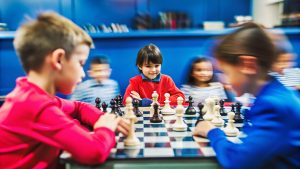
The Cognitive Benefits of Chess
- Enhancing Problem-Solving Skills: Chess is a game that makes a player decipher very complex problems with limited information. No two games are alike, so players have to build strategies and adjust the strategy as the situation develops. All this problem-solving reinforces the skills of students to think critically and creatively as they learn to weigh different possibilities and then take action.
- Developing Strategic Thinking: Chess is a game of strategy. Participants have to think a quantity of moves ahead, planning their strategy and considering what counter-moves their opponents may take. This look-ahead approach teaches pupils one way of thinking that can help enhance the estimation of outcomes and the weighing of options to make a decision. Develop skills that carry over to other areas of learning where strategic planning and foresight are important.
- Improving Decision-Making Abilities: Every chess move can be relevant and critical in meaning. Gamers have to make a proper valuation of their moves by balancing direct benefits with long-term strategy. This emphasis on deliberate decision-making fosters more careful problem-solving, teaching students to consider the broader implications of chosen actions within any context.
- Boosting Memory and Concentration: Chess improves memory because a player will have to recollect positions on the board, strategies, and even past moves. His or her bio-physical ability to concentrate is improved because he/she is pressured to keep in mind critical information and remain focused on considering moves. By increasing the memory and focus of the student through chess, this translates to better retention in class and participation in work done in class.
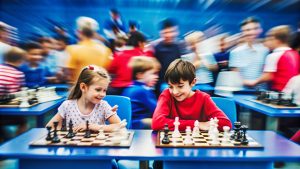
Real-World Applications of Chess in Critical Thinking
- Enhancing Academic Performance: Critical thinking developed through chess may improve academic performance. Students who play chess regularly tend to demonstrate better problem-solving, strategic thinking, and analytical skills, which in turn improve their performance in mathematics, science, and language arts.
- Fostering Creativity and Innovation: Chess enhances creative thinking in the sense that it puts players in newer difficulties and situations. It teaches students how to think outside the box and try unconventional solutions or strategies while solving these problems. This mindset is transported into other academic and personal projects, where more ingenious ways of problem-solving are developed.
- Preparing for Future Challenges: In the contemporary world, students will be bombarded with complex and dynamic issues. Chess sharpens critical thinking, which will, therefore, be a solid base to cope with those issues. Critical thinking developed while playing chess enhances the ability to wrestle with real problems and make wise decisions related to professional life.
Incorporating Chess into the Classroom Curriculum
- Integrating Chess into Lesson Plans: Teachers can always use chess to further develop critical thinking skills in the classroom. There are patterns, strategies, and problem-solving, among other important key parts of the game. In this way, lessons might often become more attractive and seem relevant by using these concepts through the practical implementation of chess.
- Creating Chess-Based Activities: Some classroom chess activities can be used to help in the development of critical thinking with fun. This ranges from chess puzzles, discussions about strategy, and simulation of games where, in reality, students get hands-on to apply their critical thinking skills. These activities engage, allow collaboration, and discussion among students, hence reinforcing their learning.
- Establishing Chess Clubs and Tournaments: Chess clubs and tournaments offer additional activities for students to gain more practice in developing their critical thinking skills. Such activities after school will further encourage students to think through chess and achieve a sense of community and competition. This adds to learning through the application of acquired skills in real-life situations.
- Professional Development for Educators: To integrate chess into the classroom successfully, teachers may need to undergo some professional development on how to teach chess. Workshops or trainings will be helpful in equipping the teachers with skills and materials necessary for the integration of chess into the curriculum. If educators are made aware of educational benefits coming from playing chess, they will be better equipped to guide their students to develop these skills.
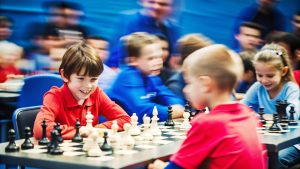
Conclusion
Chess is more than just a game; it’s a powerful tool of teaching-learning that revolutionizes the way kids think and learn. Through chess, a number of highly relevant thinking skills are nurtured in students, such as strategic planning, problem-solving, and decision-making. Though these are characteristics that underpin academic achievement, they are even more relevant to meeting the challenges of today’s world. Chess helps in developing a mind that can think several steps ahead, view things from all perspectives, and consider the outcome for the different moves, thus providing general mental toolkits enhancing student cognition.
Chess is one of the excellent and entertaining methods to inculcate such skills. It will range from lesson plan activities to chess clubs and tournaments, which will create an energetic learning environment where critical thinking would be at its peak. In the strategic world of chess, students develop many valuable ideas and skills that go much beyond the game itself. Chess integrated into schools enhances the learning experience of the student and provides him or her with the cognitive muscle to become a champion in all aspects.

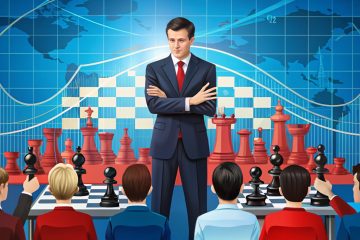
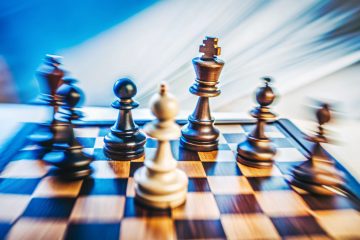
2 Comments
stephen trattner · 10/01/2025 at 19:53
I wrote a lengthy note about a prior test with controls that proves chess helps students in 2 high schools do 60 points higher than the schools with the same SAT scores in the same inner city who did not learn chess.
Would like to know if you want to join me in showing the benefit of learning chess. I know it has helped me as a trial lawyer.
StartEnd Admin · 22/01/2025 at 07:21
hank you for sharing such an insightful comment and your personal experience! I’m very interested in learning more about your research and discussing how we could collaborate to promote the benefits of chess…